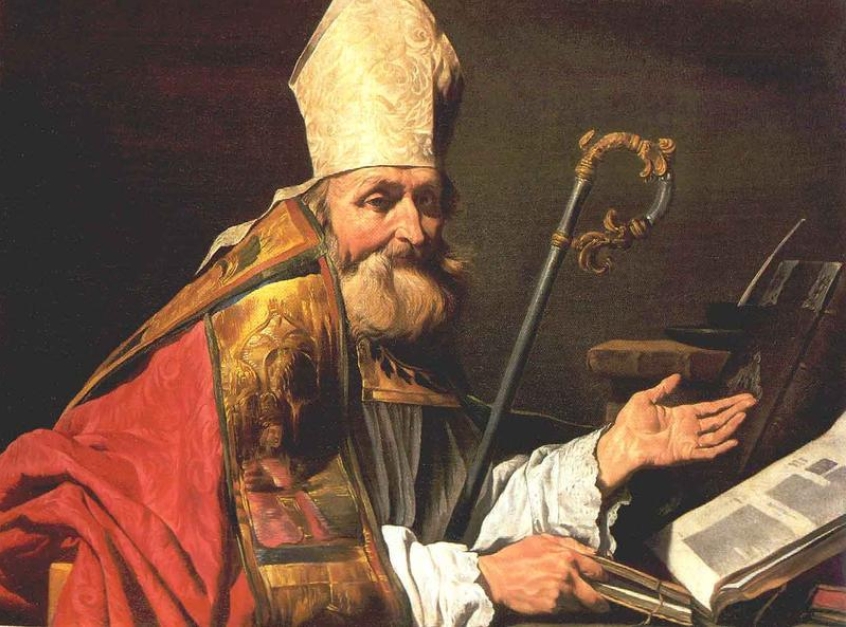On this day in AD 397, one of the great saints of the church, Ambrose of Milan, died after a lifetime of labour. From a noble family, he served as governor of Gaul before being unwillingly named as a bishop. He had attempted to mediate between two factions during a heated election, one representing orthodox Christians, the other heretical Arians; to his dismay, someone shouted 'Ambrose for bishop!' and they chose him instead.

He was to prove effective and courageous. With the help of his brother, who joined him and took over the administrative work of the diocese, he combatted the heresy of the Arians, who denied the divinity of Christ, and was a tireless pastor with an open-door policy: everyone who wanted to see him was admitted. Among his visitors was a young man named Augustine, himself to become a towering figure in the life of the church.
Ambrose became a statesman and a counsellor to emperors in a time when the Roman empire was under huge pressure. Among the stories told of him is how, during the warfare with the barbarian Goths and Huns, he would ransom the prisoners they took. On running out of money, he had the precious gold chalices used at communion melted down and used to free even more people. When his Arian enemies accused him of sacrilege, he replied they had forgotten the meaning of the eucharist – the vessels were made of gold because they contained the precious blood of Christ, shed for a ransom. And, he said: 'If the church possesses gold it is to use it for the needy, not to keep it.'
Ambrose is remembered not just for his wisdom, though, but for an act of courage in which he confronted the Emperor himself. Theodosius, later called 'the Great', committed a terrible atrocity. The town of Thessalonica had rioted and killed the governor. In revenge, Theodosius surrounded it with his army and butchered 7,000 men, women and children.
Theodosius was an orthodox Christian and a powerful ally for Ambrose in the struggle against heresy. But rather than ignore what he had done, Ambrose wrote to him demanding that he repent and do public penance.
Ambrose wrote to him: 'What has been done at Thessalonica is unparalled in the memory of man...You are human, and temptation has overtaken you. Overcome it. I counsel, I beseech, I implore you to penance. You, who have so often been merciful and pardoned the guilty, have now caused many innocent to perish...'
Penance meant standing outside the church, dressed in sackcloth and begging those going in to pray for him. Theodosius, overcome with shame, did exactly that.
When Ambrose preached his funeral sermon a few years later he said: 'He stripped himself of every sign of royalty and bewailed his sin openly in church. He, an emperor, was not ashamed to do the public penance which lesser individuals shrink from, and to the end of his life he never ceased to grieve for his error.'
Today the world remembers Martin Luther King, who said: 'Cowardice asks the question – is it safe? Expediency asks the question – is it politic? Vanity asks the question – is it popular? But conscience asks the question – is it right? And there comes a time when one must take a position that is neither safe, nor politic, nor popular; but one must take it because it is right.'
Ambrose, in facing up to a man who had the power to have him killed, did exactly that. And in doing so he made a vital contribution to the way we understand the church and the state.
As Marcellino D'Ambrosio says in Who Were the Church Fathers?: 'For Nicene Christians, even the emperor who is the champion of the Catholic faith is not himself the law but is, instead, under God's law. Or as Ambrose put it so succinctly, "The emperor is in the Church, not above it."'













